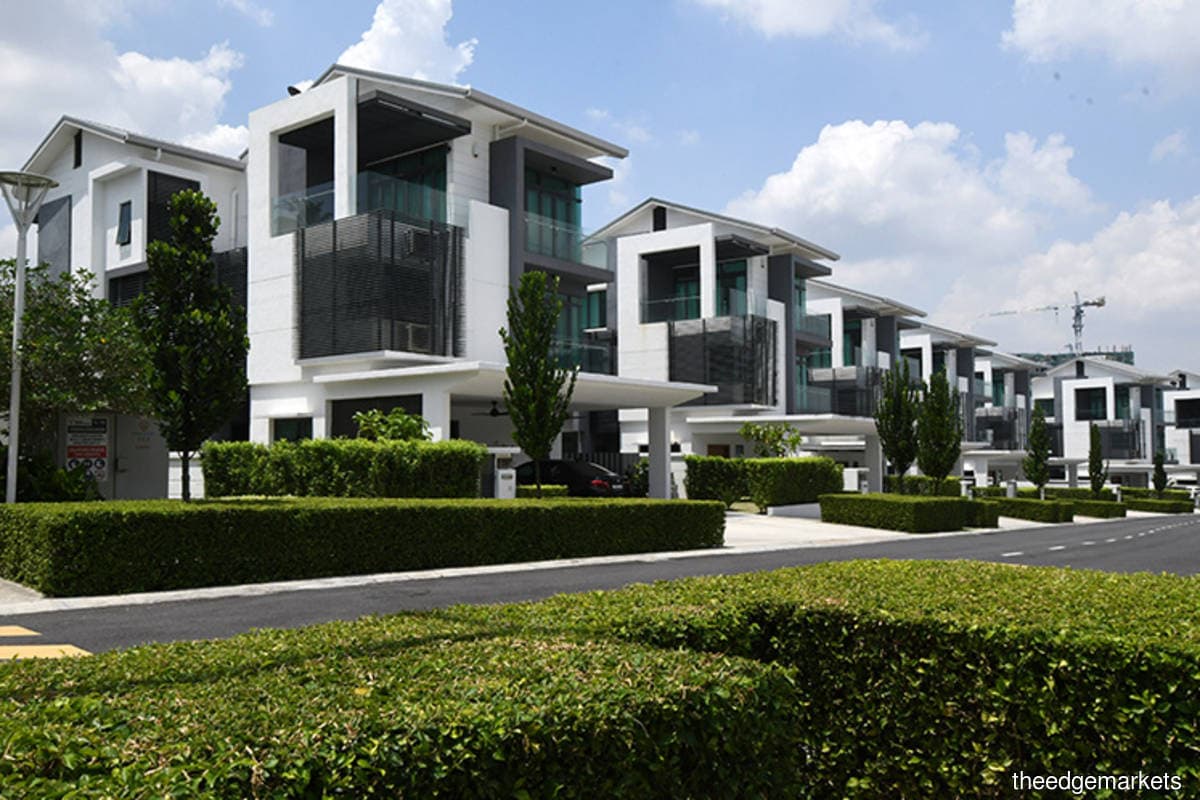
KUALA LUMPUR (Mar 31): Bank Negara Malaysia (BNM) warns that unsold properties in the country have remained at an elevated level as at end-2020. These are mainly the serviced apartments, small office home office (SOHO) units, and houses priced above RM500,000 in less popular locations.
This was despite a rebound in transaction volumes in the housing market to a pace comparable to the average quarterly growth seen before the Covid-19 pandemic, according to BNM's Financial Stability Review for Second Half 2020 report.
The central bank highlighted that the growth in housing market activity was more concentrated in the mid- to higher-priced segments, mainly in the secondary market, where buyers are more likely to be those whose incomes have been less affected by the pandemic.
This, BNM said, resulted in the growth in average house prices, as measured by the Malaysian House Price Index (MHPI), although prices increased at a more moderate pace during the third quarter of 2020.
Accordingly, the softer housing market conditions have prompted developers to adjust supply towards more affordable housing segments. While overall launches declined significantly across all price segments in the first three quarters of 2020, the central bank noted that the decline has been notably sharper for properties priced above RM500,000.
"This is a welcomed adjustment and will help reduce demand-supply mismatches that had worsened housing affordability and increased risks of price corrections in the past.
"These adjustments also do not appear to have induced a more broad-based decline in house prices in the secondary market, with average transaction prices continuing to rise, as noted earlier, owing to firm demand," BNM said.
On the other hand, BNM pointed out that the non-residential property segment has continued to face considerable challenges. For the hospitality industry, average hotel occupancies have improved from the all-time low of 11% during the Movement Control Order (MCO) but remained well below pre-pandemic occupancy levels.
"Market conditions for hotels are likely to remain modest throughout 2021 amid intense competition for a smaller pool of travellers, higher operational costs due to the imposition of standard operating procedures, and slow recovery in travel demand," BNM said, adding that the outlook remains highly dependent on the changes in interstate and international border restrictions.
Meanwhile, the central bank said shopping malls have fared a little better, with some recovery in footfalls especially towards the end of 2020. But online purchases are likely to persist and will continue to partly weigh on demand for retail space amid pre-existing excess supply.
BNM also observed that there were adjustments to incoming supply of office and retail space as some developers deferred the completion date of their projects. However, it said the planned incoming supply of office and retail space in the Klang Valley over at least the next three years remains large, equivalent to 23% and 58% of the existing stock, respectively.
"Amid the prevailing oversupply and challenging business conditions, rental and occupancy rates for office and retail space are expected to remain depressed in the period ahead.
“Taken together, risks of potential losses to financial institutions from prospects of weaker debt-servicing ability and valuations as a result of depressed conditions in the non-residential property market are judged to have increased from the impact of Covid-19," it explained.
Read more stories from the BNM Annual Report 2020 here.